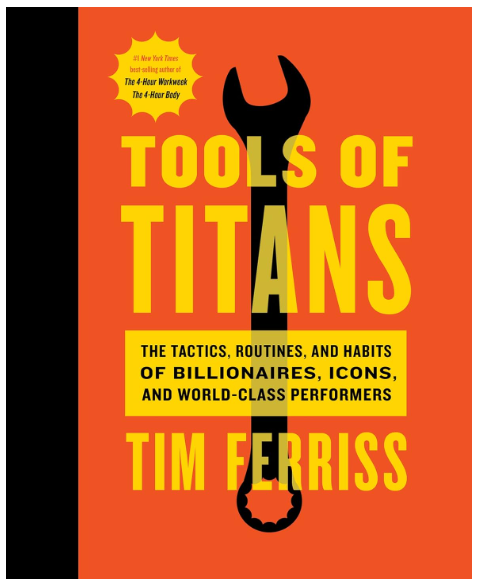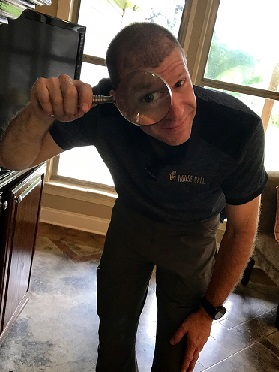One of the biggest problems facing the home inspection industry, same as most other industries, is that we put too much faith in the belief that our problems can be solved by intelligence alone. It may simply be a function of the smarter ones among us who are enamored with sitting around and thinking up ways for us to get better. All too often, the smart ones, who were fortunate enough to achieve some success, start believing that all their success is a result of their HI-IQ (home inspection intelligence quotient or “high-q”), thinking that an above-average HI-IQ is all that’s needed to run a successful business.

In the real world, having a high IQ is often overrated when it comes to solving the everyday problems we face in our businesses. The fact is that successful small business owners, those involved in running inspection businesses that really work, rely on much more than just their book-smarts. Knowing every word of Dearborn Principles of Home Inspection: Systems and Standards is great, but it’s not going to be enough to get you out of all those sticky situations that arise in the course of doing business.
For that, you’ll need more than academic knowledge. You’ll need more than YouTube videos. You’ll need more than the latest how-to broadcast. You’ll need something that’s much more difficult to obtain.
You’ll need real world, first-hand experience.
Think about what happens at the end of most inspection jobs. You’ve finished the site inspection, you’ve documented everything you needed, and you’re getting ready to debrief your clients. What’s the best way to tell them what you’ve found? What works best for this particular situation? This type of customer? A structure of this style/age/condition? An agent with this much experience? A property with this many issues?
If it all seems a bit overwhelming, it can be, especially in the beginning. Without those previous experiences, those interactions, those situations, those problems and solutions to fall back on, we’re simply flying blind. We’re trying to cobble together a plan, but we’re not sure how it’s going to work out. It’s situations like these where intelligence simply isn’t enough. Having a high HI-IQ is great, but we often need more than that. Most of the time, we simply need more experience.

Having experienced things second hand is a wonderful way to develop your knowledge, but no amount of reading, listening to podcasts, or watching videos can prepare you to deal with a seller’s agent screaming in your face, sputum flying in every direction, with the throbbing veins in their temples threatening to explode, with their bloody mess landing all over the freshly cleaned kitchen countertops. It’s something you’ve simply got to live through. Some things need to be experienced first-hand for us to work out exactly how we’re going to respond to the stress of such a predicament.
In the area between any stressor and our response lies a big valley; a gap filled with space: a space that can only be filled by experience. Our exposure to different situations, the results we get from experimenting with various ways to deal with the stress inherent in running a business, and the experiences we gain from these trials and tribulations work in concert with our HI-IQ to enable us to move through our days (and our career). Yes, being smart helps, but having the common sense to figure out what works best in specific situations is a vastly underrated talent.
An average Joe with a rope will get you out of a hole faster than a genius with a white board.
The problem with experiential knowledge is that it’s hard to get inside a classroom. The old guys didn’t call it “The School of Hard Knocks” for no reason. It’s difficult to work your way to being experienced, but it’s also the only way to get there. Learning lessons is hard: it either costs you money, hurts you physically, or embarrasses you (or some combination of the three.) And it takes time, lots of your precious, valuable time, to gain experience.

In many cases, the most successful businesses aren’t the ones captained by the smartest among us. Often, the most successful inspectors are the ones who are the most persistent. Being curious and trying different things is quite often the way to success. Thinking something will work without having an opportunity to test your theory will only get you so far. Having some intelligence is a good thing, it’s necessary to start to move the needle, but it’s not the only thing that’s needed. Quite often, the most important trait is persistence. Having the fortitude to soldier on in the face of adversity is one of the most important characteristics a business owner can have.
Many of life’s failures are people who did not realize how close they were to success when they gave up.
Thomas A. Edison
We’ve been told that we’re on the precipice of Artificial Intelligence, that soon computers will do all our thinking for us. We’ll be able to kick back and relax, as the hard part, the thinking, will be already done. But the thinking’s not really the hard part, is it? Obviously, the thinking part is important, but without the imagination to figure out how to implement the ideas, the persistence to keep iterating, and the desire to always try something new, we’d be stuck at the starting line, with a cool new idea but no way to know whether it’s a good one or not.
Based on a post by Kevin Kelly.
Would you like to get an email every Friday where we share the newest things we’ve discovered about home inspections? CLICK HERE to sign up.
Want to be an Influencer in Your Field? Share This Post!
Thanks, Joe

